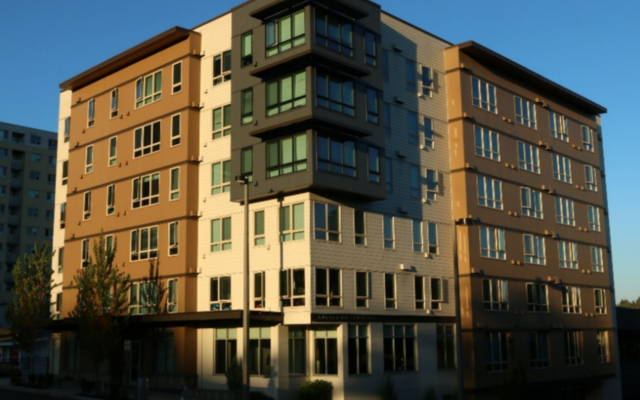Published March 11 2021

Plus, Good Neighbor Agreement Advisory Committee appointments and House Bill 1590 work plan update
On Monday the City Council received a regular update on progress made through Bellevue’s Affordable Housing Strategy, including recent actions and planned activities for the remainder of the year.
The city has helped produce nearly 1,300 affordable housing units since 2017, with approximately 700 units in the current development pipeline thanks to housing partnerships, projects utilizing incentive programs, and the Multifamily Tax Exemption (MFTE) program. This work will be enhanced by the recently adopted changes to elements of Bellevue’s Land Use Code to increase townhomes and attached accessible dwelling units.
Continuing work on the Affordable Housing Strategy in 2021 will include:
- Affordable housing incentives for faith-owned, public surplus and non-profit housing properties;
- Developing affordable transit-oriented development on public lands such as the project located at the current Sound Transit operations and maintenance facility in BelRed;
- Updates to the MTFE program;
- Affordable housing incentives in the East Main area;
- Changes to city code parking minimums for multifamily developments; and
- Developing the work program for utilizing the House Bill 1590 sales tax to fund affordable housing and behavioral and mental health services.
The presentation and discussion are available on video replay through Bellevue Television.
Good Neighbor Agreement Advisory Committee appointments
In other business, councilmembers unanimously appointed two resident-at-large members to the Good Neighbor Agreement Advisory Committee. The agreement and committee are part of the conditional use permit process for Congregations for the Homeless to establish a permanent men’s shelter in the Eastgate area of Bellevue.
The two Bellevue residents who were appointed will represent citywide resident interests on the committee.
- Jason Courter is a business owner and resident in Bellevue.
- Pete Ryan is a recent graduate of the city’s resident engagement course, Bellevue Essentials, and is a northeast Bellevue resident.
The advisory committee assists with communications between the community and homeless services operators and allows any issues with the operation to be identified early and addressed. The full committee is comprised of five residents who live within one mile of the shelter site, one representative from the Bellevue School District, one person with experience of homelessness, one representative from the human services community, one representative from the shelter operator, one person representing funders of the operation and two residents at large appointed by the city council. The committee will develop a plan to address operational and communication commitments that are uniquely tailored to the location where the homeless services are provided. Public meetings will be part of that plan development process.
More information on the men’s shelter is available on the city’s website and details on the Good Neighbor Agreement Advisory Committee are in the council meeting agenda item.
House Bill 1590 work plan update
Outreach and engagement activities with stakeholders are currently underway as part of implementing a House Bill 1590 affordable housing work plan. House Bill 1590 passed in the state Legislature in 2020 and allowed cities to utilize a tenth of one percent sales tax increase for affordable housing, mental/behavioral health services, and housing-related services in their local jurisdiction. Councilmembers received an update on the process and will be briefed in April on final stakeholder feedback and funding recommendations.
In Bellevue, initial outreach with human service agencies and affordable housing developers, providers and operators is the first step to collect input on local housing challenges, service needs and barriers. Analysis from these stakeholder meetings identified key themes for important areas of focus, including providing housing with supportive services, having mental/behavioral health services on site, providing a variety of housing types to meet community needs, and providing flexible financial assistance to maintain housing stability.
More details on the initial stakeholder feedback is available in the meeting agenda item.
